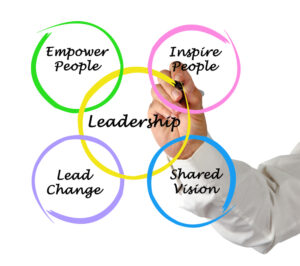
By Carolyn Crist
The vast majority of business leaders responding to a recent survey said they’re concerned they can’t train employees quickly enough to keep up with AI and tech developments in the next three years.
A similar amount said AI and other tech disruptions will require companies to rethink skills, resources and new ways of doing work, according to an April 4 report by the World Employment Confederation.
“It is clear that advances in AI have the potential to transform the workplace at an unprecedented pace, yet the growing technical and soft skills gap is a critical hurdle businesses must overcome,” Jonas Prising, chairman and CEO of ManpowerGroup, a WEC member organization, said in a statement.
How CIOs are putting data in action
“While Gen AI will revolutionize many aspects of work, there are elements of jobs that are, and will remain, quintessentially human: collaboration, communication, creative problem solving, and empathy towards others,” Prising said. “Organizations must cultivate these uniquely human traits and invest in upskilling and their workforce to succeed in this new digital era.”
In a survey of 715 senior executives worldwide, including 680 from Forbes Global 2000 companies and 35 public sector organizations, 80% said it’s never been this difficult to plan for future talent requirements.
Overall, 92% of senior executives said they’ll need a more flexible workforce in the next two years. They pointed to several strategies to build this flexibility, including sectoral talent pools, a skill-based approach to hiring, online talent platforms, higher use of contingent workers, more internal flexibility through inter-department secondments or job rotations and talent from other countries.
Notably, employers are increasingly looking to contingent workers for in-demand skills and talent, with 79% saying that employing these workers with knowledge of AI and new technology is an effective way to spread understanding to employees.
Ultimately, AI literacy will be key for workforce transformation, according to a CompTIA report. To build this literacy, employers can offer learning and development opportunities such as short online programs about AI basics, targeted training for specific job roles and hands-on experiences across a company’s existing workflows.
About 90% of HR leaders believe that up to half of their workforce will need to be reskilled in the next five years due to AI shifts, according to a PeopleScout and Spotted Zebra report. Incremental reskilling and upskilling could help, with employers communicating what the future of AI looks like in the company, addressing fears and ensuring employees receive the skills they need to meet those changes.
As AI reshapes the workplace, career development and learning opportunities will drive business agility and innovation, according to a LinkedIn Learning report. Although several barriers continue to exist for L&D, such as budget, C-suite leaders appear to be listening and are more open to conversations due to skill gaps around AI and other tools.
Source: ciodive.com








